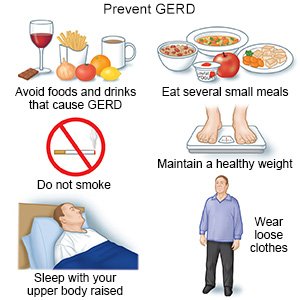Abdominal Pain in Pregnancy
Medically reviewed by Drugs.com. Last updated on Apr 6, 2025.
AMBULATORY CARE:
Abdominal pain during pregnancy
is common. Some of the causes include heartburn, constipation, gas, false labor, and round ligament pain. Round ligament pain is caused by stretching of the ligaments that support your uterus. Abdominal pain may be caused by a health problem, such as a stomach virus or appendicitis (inflammation of the appendix). The pain may also be caused by a problem with your pregnancy, such as a threatened miscarriage or preterm labor.
Call your local emergency number (911 in the US) if:
- You have a fast heartbeat.
- You have shortness of breath.
- You feel lightheaded or faint.
Seek care immediately if:
- You have sudden, severe pain or cramps that are so bad that you cannot walk or talk.
- You have vaginal bleeding or discharge.
- You have nausea, vomiting, fever, and severe pain on your right side.
Call your obstetrician if:
- You have light vaginal bleeding or spotting.
- You continue to have abdominal pain that cannot be relieved.
- You have a fever.
- You have questions or concerns about your condition or care.
Treatment
will depend on the cause of your pain. Ask your healthcare provider before you take any medicine during pregnancy, including over-the-counter pain medicines. Acetaminophen may be recommended. Ask how much to take and how often to take it. Follow directions. Acetaminophen can cause liver damage if not taken correctly. Your provider will tell you how much is safe to take each day during pregnancy. Too much medicine can be harmful to your baby. Read the labels of all other medicines you are using to see if they also contain acetaminophen, or ask your doctor or pharmacist.
Self-care:
- Rest as needed. Rest may help to relieve pain. Your healthcare provider may recommend that you rest on your side instead of on your back. He or she may tell you to lie on your left side, if possible. Place a pillow under your abdomen. Keep another pillow between your knees. Ask your provider about other ways to relieve this pain, such as a supportive belt or pregnancy exercises.
- Do not lie flat in bed or bend over if you have heartburn. Ask your obstetrician if you should make any changes to the foods you eat. Ask if you can take any medicines for heartburn.

- Move slowly. Avoid quick changes in position or movements that cause pain.
- Exercise as directed. Gentle exercise can keep the ligaments loose and strengthen core (abdominal) muscles. An example is swimming, or a yoga program designed for pregnancy. Ask your healthcare provider which exercises are safe for you and how often to exercise. For most healthy women, a good goal is to try to get at least 30 minutes of exercise every day. If activity causes pain, try not to walk too long or too far at one time. Break your exercise up into short amounts.

- Apply a warm compress to the area. Warmth can relieve pain and muscle spasms. Ask your healthcare provider if you can take a warm bath or use a heating pad. Keep all heat settings low. High heat can be dangerous for your baby. Do not sit in a hot tub or use hot water in your bath. You may also be able to massage the area gently while you are applying heat. Massage can help relieve pain.
- Eat more fiber and drink more liquids to relieve constipation. Fiber is found in fruits, vegetables, and whole-grain foods, such as whole-wheat bread and cereals. Ask how much liquid to drink each day and which liquids are best for you.

Follow up with your obstetrician within 3 days or as directed:
Write down your questions so you remember to ask them during your visits.
© Copyright Merative 2025 Information is for End User's use only and may not be sold, redistributed or otherwise used for commercial purposes.
The above information is an educational aid only. It is not intended as medical advice for individual conditions or treatments. Talk to your doctor, nurse or pharmacist before following any medical regimen to see if it is safe and effective for you.
Learn more about Abdominal Pain
Treatment options
Care guides
Further information
Always consult your healthcare provider to ensure the information displayed on this page applies to your personal circumstances.
